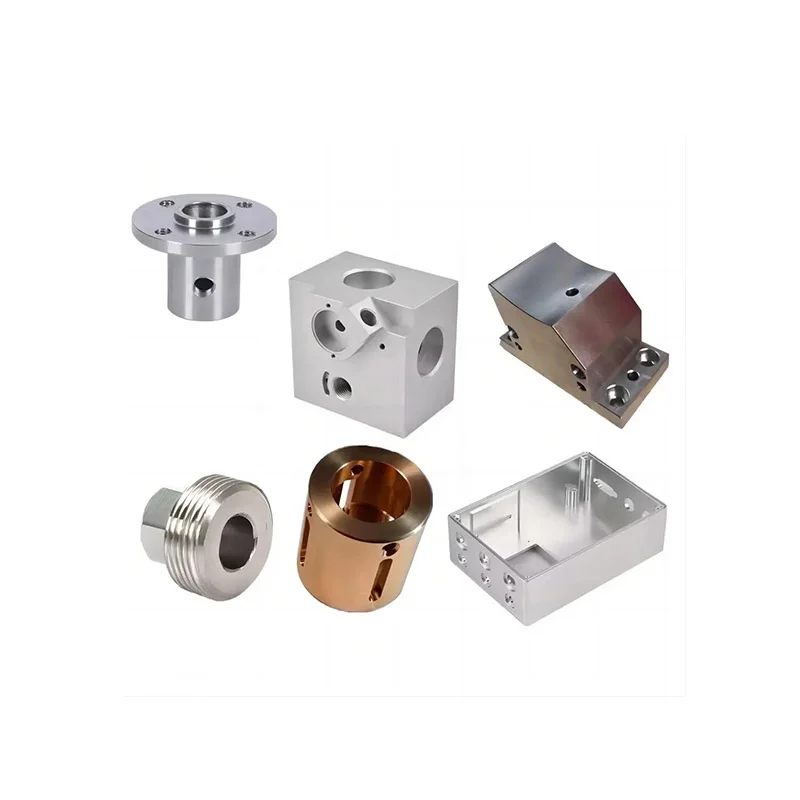Precision parts CNC machining service has become an essential foundation of modern industrial production. Unlike traditional manual machining, CNC machining uses computer-controlled equipment to achieve high-accuracy and complex component production. This technology is widely applied across aerospace, automotive, medical devices, robotics, and electronic equipment, offering consistent quality and flexibility in design.
Rather than merely focusing on speed and cost, the true significance of precision parts CNC machining service lies in its role as a driver of innovation—transforming product design, reshaping supply chains, and enabling customized engineering solutions. In this blog post, as a high quality custom machining parts factory, Vibo will share the role of precision parts CNC machining service in manufacturing, its Material versatility, etc.
Role of Precision Parts CNC Machining in Product Development
When businesses invest in a precision parts CNC machining service, they are not only outsourcing manufacturing but also engaging in a collaborative process of product development. Engineers can test new geometries, adjust tolerances, and experiment with materials without relying on large-scale tooling.
This approach encourages faster prototyping and iteration. For industries such as medical technology, where every millimeter of a surgical instrument matters, CNC machining ensures that prototypes transition smoothly into final production with minimal deviations.
Material Versatility in Precision Parts CNC Machining Services
One of the less-discussed strengths of precision parts CNC machining services is material adaptability. Unlike processes that are limited to plastics or metals, CNC machining supports a wide range of materials, including aluminum, titanium, stainless steel, engineering plastics, and even composite blocks.
This material flexibility allows designers to balance performance requirements with cost and weight considerations. For example:
-
Aerospace applications often demand lightweight titanium parts.
-
Automotive sectors rely on aluminum for engine and transmission components.
-
Medical device manufacturers may require biocompatible stainless steel or polymers.
By offering this material versatility, CNC machining services empower industries to meet diverse and evolving technical standards.
Precision Parts CNC Machining Service and Digital Manufacturing Integration
The integration of precision parts CNC machining service into digital manufacturing workflows is reshaping global production models. With CAD/CAM software, engineers can design components digitally and send programs directly to CNC machines. This eliminates inefficiencies, reduces errors, and ensures repeatable precision across multiple runs.
Moreover, the rise of Industry 4.0 has brought smart CNC machines capable of real-time monitoring, predictive maintenance, and data-driven optimization. By connecting precision parts machining with digital networks, companies are not just making parts—they are building intelligent manufacturing ecosystems.

The Sustainability Dimension of Precision CNC Machining
Sustainability has become a decisive factor in modern supply chains. Precision parts CNC machining services contribute to sustainability by minimizing waste, reducing rework, and optimizing material usage.
While traditional casting or forging methods may generate excess scrap, CNC machining with optimized toolpaths ensures material is removed efficiently. In addition, digital simulation tools allow manufacturers to test processes before physical machining begins, further cutting down waste.
This alignment with eco-friendly manufacturing practices gives CNC machining an important role in the global transition toward greener industries.
Customization Through Precision Parts CNC Machining Services
One of the most innovative dimensions of CNC machining lies in its customization capabilities. Precision parts CNC machining service allows manufacturers to tailor solutions for niche markets or specific client needs without significant setup changes.
For instance:
-
Medical implants can be customized to match patient anatomy.
-
Robotics manufacturers can design specialized joints or housings.
-
High-end automotive brands can order bespoke engine components.
This ability to deliver small-batch, high-accuracy parts makes CNC machining indispensable in industries that require both personalization and reliability.
Overcoming Design Complexity with CNC Machining
Product designs today are far more complex than ever before. With miniaturization in electronics, intricate geometries in aerospace, and multi-functional assemblies in industrial machinery, manufacturing precision is non-negotiable.
Precision parts CNC machining services excel in this environment. By using 5-axis or multi-axis machining, service providers can produce intricate components with undercuts, curved channels, or micro-features that traditional processes cannot achieve.
This makes CNC machining a true enabler of engineering creativity—turning ambitious designs into tangible, functional products.
Global Supply Chain Resilience and CNC Machining
Global manufacturing has recently faced disruptions, from raw material shortages to logistic constraints. Precision parts CNC machining service offers resilience by supporting decentralized production.
Instead of relying solely on large centralized factories, companies can collaborate with local CNC machining providers worldwide. This distributed approach reduces shipping delays, ensures faster response to market demands, and increases supply chain flexibility.
Thus, CNC machining is not just a technical service; it is a strategic asset for supply chain management.
The Future of Precision Parts CNC Machining Services
The future of precision parts CNC machining service is tied to innovation in automation, AI-driven process optimization, and hybrid manufacturing technologies. The combination of CNC machining with additive manufacturing (3D printing) is creating new opportunities where rough prototypes can be printed and then finished with CNC precision.
This hybrid model saves time, reduces costs, and expands design possibilities. Furthermore, AI-driven toolpath optimization and predictive maintenance will enhance efficiency and minimize downtime, ensuring CNC machining remains at the forefront of modern manufacturing.
Conclusion
Precision parts CNC machining service is more than a manufacturing method. It is a versatile, sustainable, and innovation-driven process that supports industries in bringing complex ideas to life. From enabling medical breakthroughs to powering aerospace advancements, CNC machining services serve as a bridge between engineering imagination and industrial reality.
As industries continue to face global challenges, the adaptability, customization, and digital integration of CNC machining ensure that it will remain a cornerstone of advanced manufacturing for decades to come.
www.viboprecision.com
Vibo